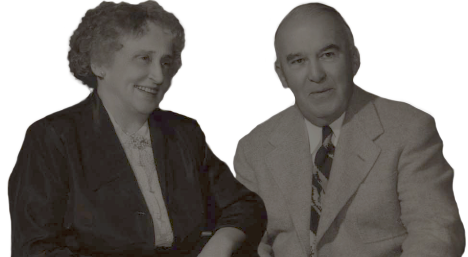From the Marble King to the Aladdin of Aluminum
Richard S. Reynolds learned his first business lesson at the age of twelve. He was named the “Marble King” after winning all the marbles in his hometown of Bristol, Tennessee. But rather than keep the stash so that no one else could play, R.S. returned his winnings. Reviving the town game helped him realize that a monopoly didn’t benefit anyone. This insight proved useful later during his career.
Reynolds’ ventures in business began when he left law school at the request of his uncle, R.J. Reynolds, to go to work at his company, R.J. Reynolds Tobacco. There, R.S. helped advance the company by moving it from chewing to smoking tobacco and formulating a milder tobacco blend that became Camel cigarettes. His invention of an all-metal, moisture-preserving container, called the Prince Albert Tin, was a technological breakthrough for the tobacco industry and the first of his inventions in metals.
In 1912, R.S. left R.J. Reynolds Tobacco to start the Reynolds Corporation with his two brothers. They created household cleaners until the start of WWI, when soap was deemed unessential. As the Great War came to a close, the Reynolds brothers sold the Reynolds Corporation and R.S. turned his entrepreneurial talents to the creation of a new foil packaging company. In 1919, R.S. Reynolds founded the United States Foil Company, which later became Reynolds Metals Company, to manufacture tin foil for cigarette packaging. Reynolds then introduced aluminum—a cheaper, lighter, more durable metal—into the manufacturing of foil, replacing tin.
Before the start of World War II, R.S. Reynolds suspected that the United States had underestimated the need for aluminum to build necessary military equipment. He contacted President Franklin D. Roosevelt and testified to the fact before the United States Senate committee investigating the defense production effort. To start another factory for the production of aluminum to aid the war effort, R.S. Reynolds leveraged all his assets for a loan from the government. By the time the Second World War had begun, Reynolds Metals had become the second producer of basic aluminum in the United States, a role that was instrumental to the production of aircraft and other military supplies.
At the close of the war, the metals industry turned its focus to household products. And again, R.S. Reynolds was the pioneer. Understanding the strength and flexibility of aluminum, Reynolds changed American kitchens forever with the introduction of Reynolds Wrap.
In 1948, R.S. Reynolds announced that he was turning leadership of Reynolds Metals over to his four sons. He took a seat as the chairman of the company, where he remained active until his death in 1955. At his passing, local and national farewells remembered Reynolds as the Aladdin of Aluminum and The Poet Industrialist.
The full story of Reynolds Metals’ risks and developments throughout the war and the aluminum industry, The Wartime Efforts of R.S. Reynolds, is available here.

